In mythology, the Phoenician God Hermes was known by the Greeks and Romans as Mercury. He is credited with the invention of 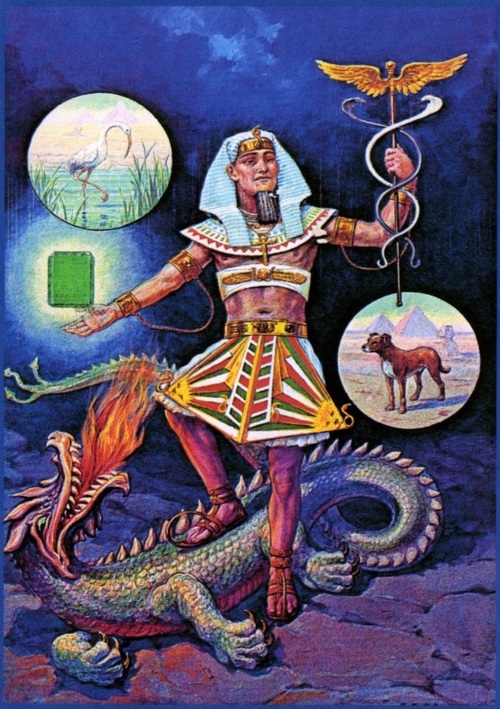 the fine arts,’ of the lyre, of medicine, of letters, of commerce, of magic, and of wrestling. The ancient Egyptians version of Hermes was known as Thoth, who was also the inventor of writing, magic and the arts. He is sometimes referred to as the trickster, and in the Iliad he was called “the bringer of good luck,” “guide and guardian”, and “excellent in all the tricks.” Hermes is also known as an inventor of fire, god of commerce and profit.
the fine arts,’ of the lyre, of medicine, of letters, of commerce, of magic, and of wrestling. The ancient Egyptians version of Hermes was known as Thoth, who was also the inventor of writing, magic and the arts. He is sometimes referred to as the trickster, and in the Iliad he was called “the bringer of good luck,” “guide and guardian”, and “excellent in all the tricks.” Hermes is also known as an inventor of fire, god of commerce and profit.
The confusion, or multitude of various character aspects to the God Hermes is primarily due to both the mythological creations by various authors such as Homer who attributed secrets, or their own perceptions to his character, and also the many authors who have also done the same. Fast forward 3,000 years to today and thousands of stories later, and we now have the end result being about 100 different meanings for this God.
Over the course of my research during the last several years, I have come to realize that if you want to find the true meaning of any subject, myth or God, you have to begin by studying the actual etymology of the words used to name that which you seek to understand. Another rule I have, is that you cannot be placed under a spell by those authors who spell and entrance their words and works into your head, without doing your own type of magical spelling to make sure you do not become spell bound.
Hence, don’t be tricked by the trickster…….
THE ETYMOLOGY OF THE NAME HERMES (HER-MES OR KER-MES)
In the etymology of the name Hermes, who is sometimes referred to as Hermon (Herm-On); we find the true secret ancient meaning to his name. Not a plethora of explanations by a thousand different authors, but a simple singular meaning based on common sense and using the science of words that today we call etymology; and if you are studying Greek or Phoenician myths and teachings, you need to use these same languages they speak to discover the true meaning like that of Hermes. You then take these meanings and make connections in their history, customs, and traditions to make sense of the ancient secrets that lie behind the darkness of the veil of Isis in order to see the light.
In the ancient Hebrew/Phoenician language, K and H are but one and the same letter. Therefor, Hermes can be spelled as Kermes, and it is from this sacred name of Kermes where we find the hidden true connection to the word worms, magic, purple, profit and the God of commerce. In Arabic, hermes is spelled kermes; in French, kermès; Old Irish, cruim; Italian, chermes; Lithuanian, kirmis; Albanian, krimp; and Spanish, carmes. In Sanskrit, krmi-ja is a compound word meaning “red dye produced by a worm.” It is said that a worm spelled krmih grows fat (Vmid) on raw flesh (kravye), or it may be derived from (the root) kram, meaning to creep, or from krdm (to crawl).
All throughout the region around the Mediterranean Sea, Levant and southern Europe, you will find a species of worms called kermes that live on a unique type of oak tree called the “kermes (hermes) oak (quercus coccifera),” and in England they are known as the British oak.
The dye is harvested from pregnant female kermes worms, which look like small red peas and that can be found attached to the trunk and branches of the “kermes oak tree.”
This dye was often called in commerce ‘hermes.’
The etymology of quercus coccifera, the specific name ‘coccifera,’ is related to the production of red cochineal (crimson) dye and is derived from Latin, coccum; which was from Greek κὀκκος, the kermes worm. The Latin -fera means ‘bearer’. Hence, instead of Lucifer the light bearer, we have kermes (worm) the purple bearer.
The symbol of Hermes also has the word ker. In Greek, his symbol is called the kerykeion (ker-y-kei-on), and today it is known primarily by the Latin word ‘caduceus,’ with the two serpents/kermes/worms intertwined around a winged staff.
This is why oak trees, cities, statues, and symbols of Hermes can be found wherever the Phoenicians had sailed, traded and conquered with their billion, and quite possibly trillion dollar worm, purple, silk, medical and other goods that they had monopolized in order to become the Sons of the God of Commerce. In order to honor this fact, the Phoenicians had created the God Hermes represented in human form as a beautiful young man who made his way around the world with his winged hat, and winged shoes holding his ker-ykeion or caduceus. After all, he was the worm God Ker-Mes who helped make the Phoenicians one of the most powerful people, who built their empire with the help of a worm who happened to produce a beautiful purple dye.
THE MYTHOLOGICAL MEANING OF HERMES (KERMES)
The mythological meaning of Hermes (Kermes) is found in studying the Greek meaning of the compound word that is composed of the two words Her or Ker, and Mes (Her-Mes or Ker-Mes). The Greek meaning of the work Her or Ker is destruction, death and fate. In Greek mythology, the Keres(Κῆρες; singular: Ker Κήρ) were female death-spirits. According to a statement of Stesichorus noted by Eustathius, Stesichorus “called the Keres by the name Telchines”, whom Eustathius identified with the Curetes (Kuretes or Ker-re-tes) of Crete, who could call up squalls of wind and would brew potions from herbs (noted in Harrison, p 171). In the fifth century, Keres were imaged as small winged sprites in vase-paintings adduced by J.E. Harrison (Harrison, 1903), who described apotropaic rites and rites of purification that were intended to keep the Keres at bay.
The Greek word hermeneus (ἑρμηνεύς ) means interpreter, reflecting Hermes’s function as divine messenger with his winged hat and shoes which would be akin to the angelic being with wings in Christianity. It can be found the word cherub, or more appropriately, ker-ub whose meaning is an order of angelic beings, or should I say angelic worms or Hermes. Here is an image below of the God Hermes with the Goddess of War. He is depicted as an angel or more appropriately, a fallen angel …
The second word in Her-mes is ‘mes.’ The meaning of the word mess is middle or intermediate, and fits perfectly with Hermes as the interpreter, or second messenger or God. The meaning of the word Her or Ker we have already identified is destruction, death and/or fate. This definition would go in line that when one is infected with the Kers or Hers, their fate, or mes is sealed by the middleman that resides in their bodies who we know has the winged spirit or God Hermes, or should we just say Worms?
As it is said in the Hebrew Bible in Exodus; “the worms that the manna (man) bred (flesh) were of this nature; “Man that is a worm (Hebrew: rimmah), and the son of man which is a maggot” (Hebrew: tole’ah),” or in Job 25: 6“How much less man, that maggot, And the son of man, that worm!” Hence, “They shall move out of their holes like worms of the earth,” signifies rather ‘creeping things,’ or ‘ serpents.’ – Micah (vii. 17)
I have written many articles about the Holy Island of Crete, worms, and also the ancient priesthood who were called by many names such as the Priests of Pan, Telchines and the Curetes (Kuretes or Ker-re-tes). It is this history and names such as the Ker-et-es, that we can find the same word of Ker, that is the same word that makes up the name of Hermes who we now know the legend of Hermes originated on Crete which was the product of this very same priesthood.
Hermes is sometimes referred to as Hermon (Herm-On), and you will find that he was born at Mount Hermon which is the same mountain on the same Holy Island of Crete where his father Zeus was also born. Manly P. Hall had said that Hermes was known to the Jews as “Enoch.” Today it is known as Mount Ida, but biblically as Mount Hermon where in the Book of Enoch, is the place where the Nephilim fell. On Mount Ida there is a cave where Zeus was said to be hidden, and the infant God placed in the care of the priesthood of the Ker-et-es as well. The French Occultist, Eliphas Levi had written; “The fallen angels gathered around their chief, Samiaxas, on a high mountain, which has been called ever since ‘the mountain of the Oath’, for the Eggregores pledged themselves there one to the other with a sacrilegious vow.”
Here is an image below that depicts this sacrilegious vow of Hermes and a merchant showing the God of Healing and Truth, Asclepius disapproving Hermes. Also shown as the three naked Graces Meditrine, Hygeia and Panacea.
In the word Hermon, we get the compound meaning with the word ‘On,’ which is “a state of being, or power supply.” Therefor the worm named Kermes, when referred to as Kerm-On, is an angelic source of earthly and spiritual power for the Phoenicians which will become more than evident to you with in my next article “Hermes the Billion Dollar Worm God.”
It was on ‘the mountain of the Oath’ on Mount Ida where Pythagoras was initiated into the secret mysteries by the priests (Levites) of the Idaean Dactyli (Judeans and Tribe of Judah), by whom he was purified with the meteoritic thunder-stone in the cave of Zeus on Mount Ida in Crete; also known as the original Mount Zion, and mountain of the Oath of the Brotherhood who made the sacrilegious vow.
These priests, and people were the fallen ones who turned away from their God in order to make many more Gods, Idols, symbols and sacrilegious vows to the materiality of commerce, war, and conquest. This would indicate the covenant and vows of the Nephilim made at Mount Zion. Those that fell…
Where do you see the symbol of Hermes today?

Moe is the founder of GnosticWarrior.com. He is a father, husband, author, martial arts black belt, and an expert in Gnosticism, the occult, and esotericism.

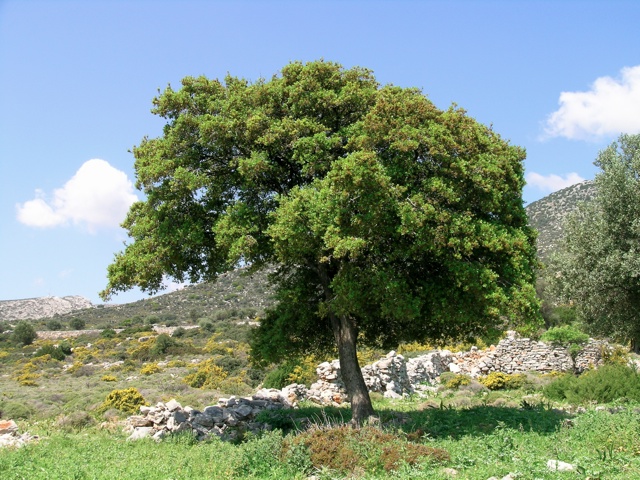


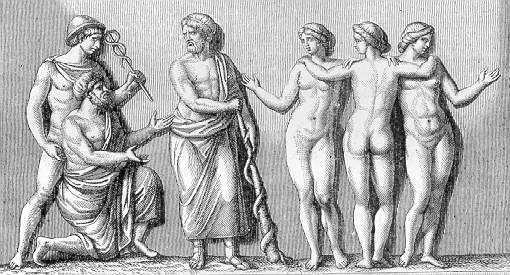
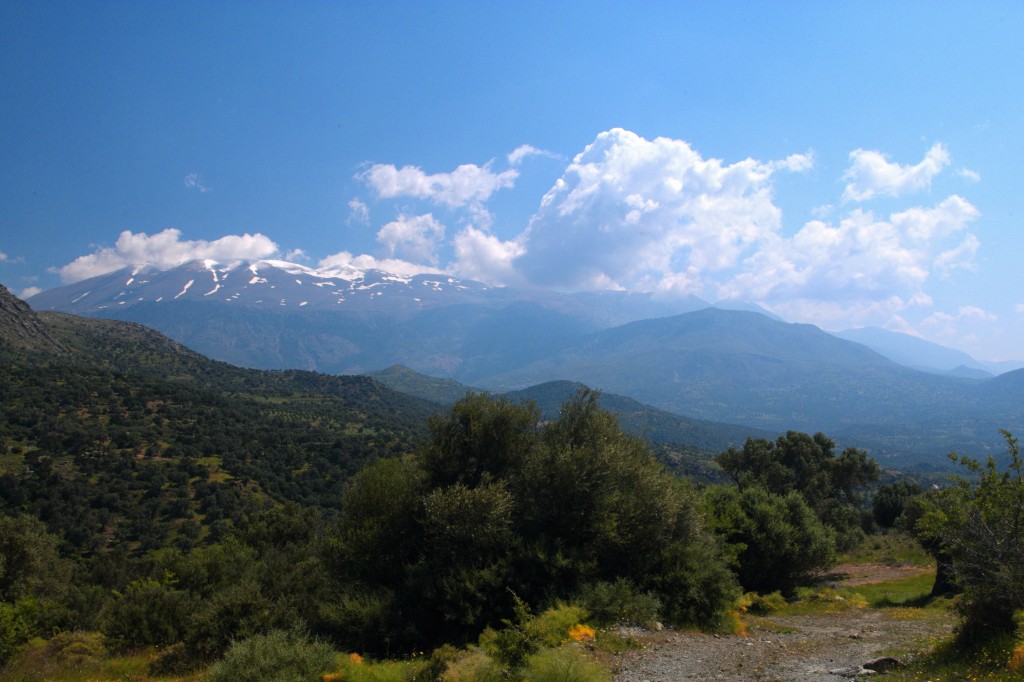
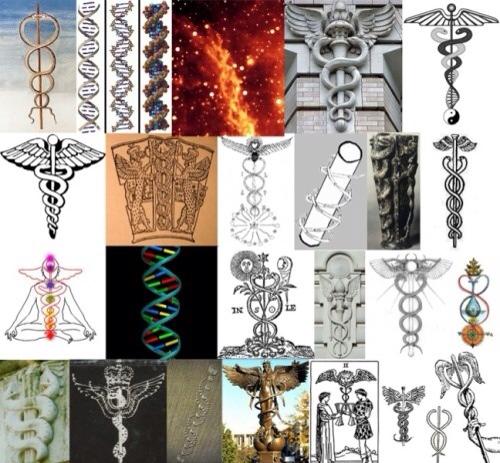
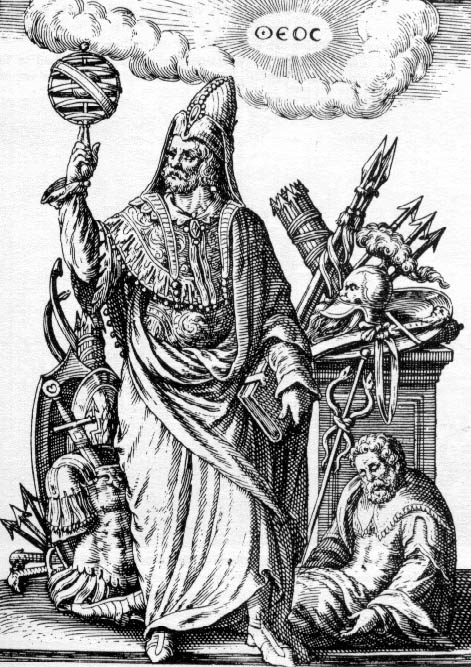
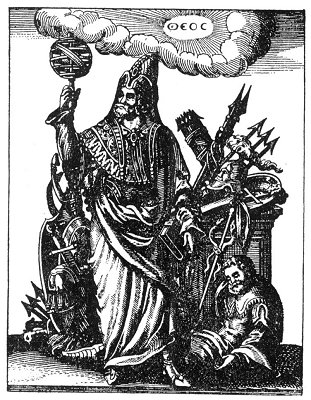

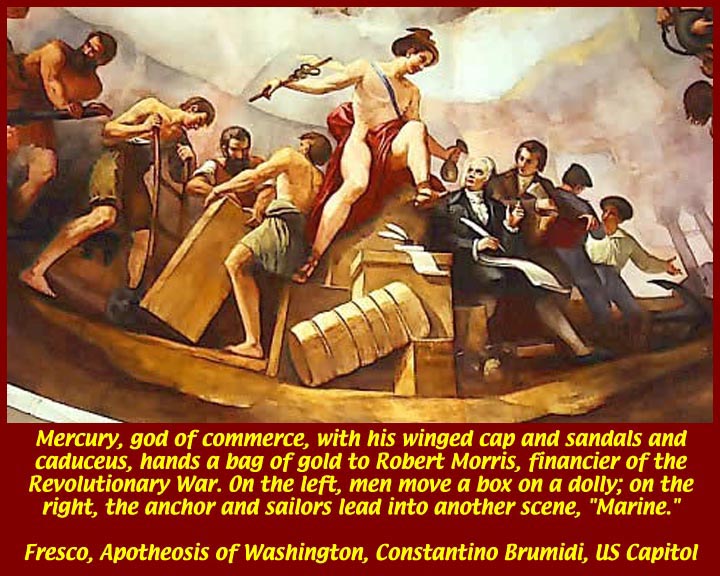
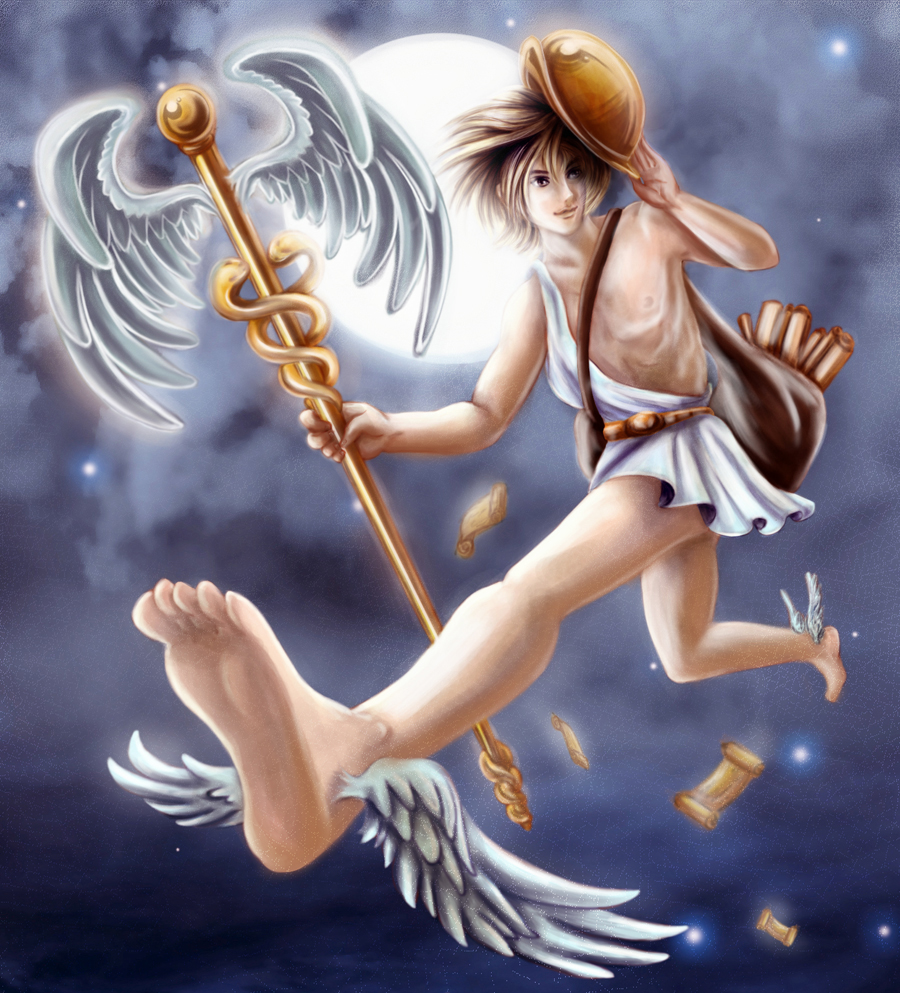
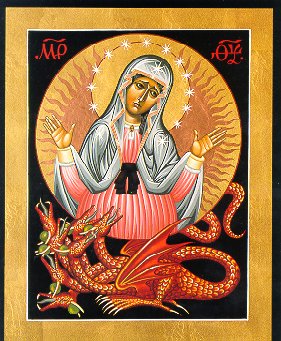

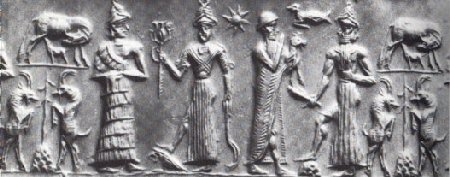
I’ve been looking into etymologies for quite some time. I know someone has been deliberately scrambling the true meaning of many words for centuries. Even as far as saying “unknown origin”. I found similar words across continents and stopped believing they’re just mere coincide. One example is ”theos” Greek for God and in Nahuatl the word “Teo” as in teotihuacan also means god. Also the meaning of the word pyramid should fire in the middle. “Pyr” from fire and “amid” midst. Occult might also be composed of he word “oculus” as eye and cult or worship. Worship of the eye. Quite interesting there’s a monkey god in India called hanuman which sounds like human. Sadly most of the humanity has that part monkey/beast (rhesus) in their DNA. I’ve been searching for hermon. There’s something on that “mon” ending that haven’t figured out yet. I feel like many words derive from it such as monkey, money, Monday, mammon (Bible), demon. I’m aware those fallen angels really screwed up humanity
so zeus and hermes are not greek but hebrew is that what your saying ?